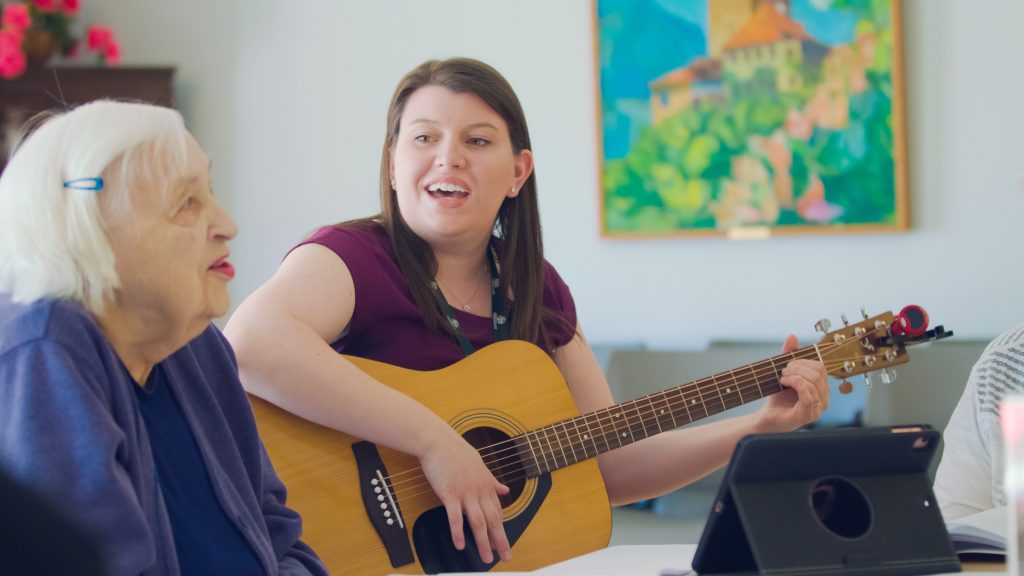Peer Support Groups Reduce Loneliness in Residential Care Homes

Award Date: 2017
Project Lead(s): Zsofia Orosz, Manager
Project Title: The Power of Peer Support: Reducing Social Isolation in Residential Care Settings
What is the issue?
Loneliness in older adults can lead to depression, dementia, and an increased risk of death. Many residents who move into residential care homes do so following a crisis. This can also be a time when they experience overwhelming loneliness from the loss of independence, neighbours, and sometimes, a spouse or partner.
Java Memory Care and Java Music Club are two peer support group programs that promote social connection. They are based on the concept that people are happiest when they help each other. Group members meet weekly to share experiences, discuss topics, listen to music, and support each other. Java Music Club is for residents with normal cognition or mild to moderate-stage dementia. Java Memory Care is designed for people living with moderate to advanced dementia.
What did we do?
We tested Java Memory Care or Java Music Club in 30 long-term care homes and five retirement homes in Ontario. We provided each home with a Java peer support program kit, in-person training workshops, coaching, and a series of webinars. We built a community for participants to share their experiences through webinars, in-person workshops, and a newsletter. Project savings and fundraising allowed us to develop a short documentary series called “Better Together.”
What did we find?
Recreation professionals strengthened their abilities to lead emotion–based discussions. Residents made meaningful connections with their peers. After three months, many quieter residents were speaking, engaging with others, and supporting their peers more than they did before the programs. All residents interviewed said that the programs reduced their loneliness and they planned to continue participating.

